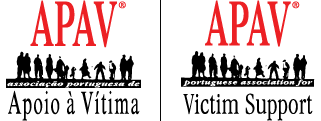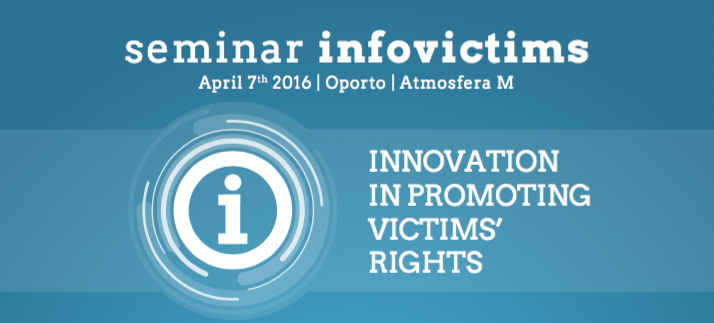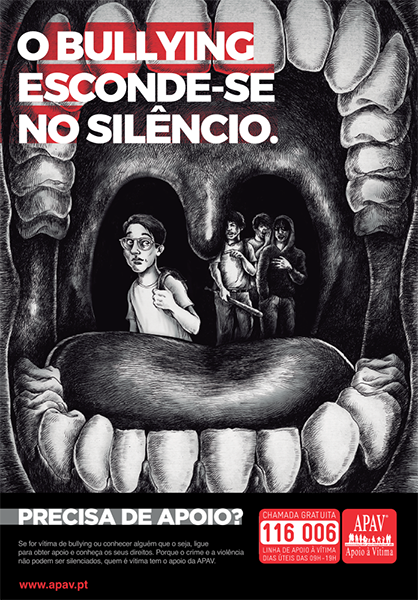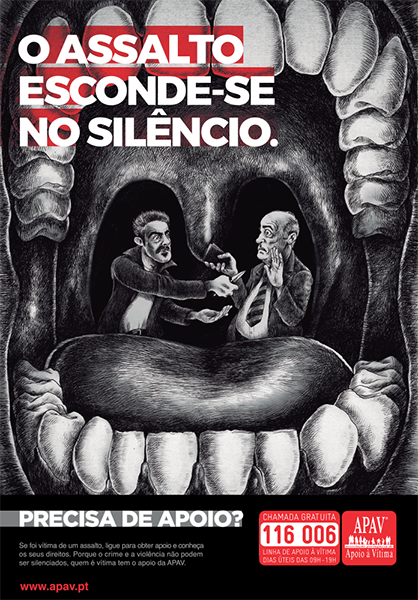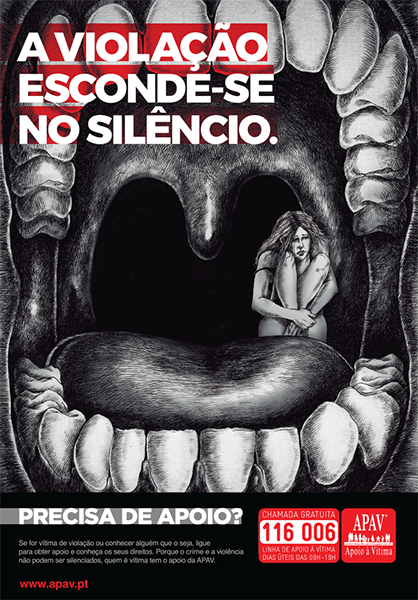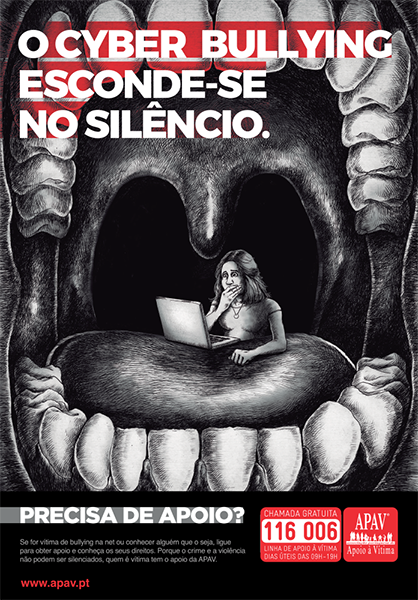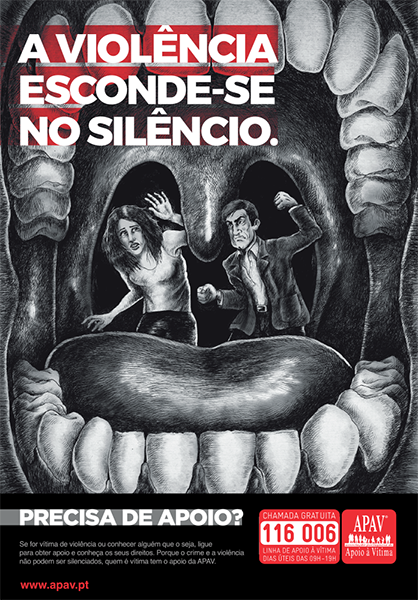
Manual of Psychosocial Support for Migrants
Europe is facing an unprecedented migrant crisis. The movement of thousands of people, fugitives from conflict zones, are challenges to European countries.These migrants have suffered a long-lasting victimization process, initiated by a violent war which made them leave their homes, flee their countries and forced them togo through a tough journey, often with traumatic circumstances, to finally face an uncertain futurein the host countries. All these issues, in addition to the cultural differences, are a big challenge to professionals who will be in contact with these people and support them.
APAV recently participated in the elaboration of a manual, addressed to technicians who are or will be supporting the migrants arriving in Europe - Manual of Psychosocial Support for Migrants. This manual is a common initiative of APAV, the General Health Directorate and the Portuguese Red Cross. It essentially describes the issues of psychosocial impact and presents practical strategies on how to manage situations of suffering and psychological trauma. Among the many assistances that have emerged to help the technicians, the area of psychological trauma was one of the hardest information to find especially detailed guidelines.
The contribution of APAV reflects the experience gained over the years in supporting the migrant victims, victims of trafficking, as well as the knowledge of professionals who manage and support daily complex situations of trauma and intervene in various crisis scenarios. This experience, allied with the contributions of the Red Cross and the General Health Directorate, enabled the creation of a practical manual, with many suggestions of planned situations that may be placed during the support process. These guidelines can help minimize the impact on migrants, but also help the professionals who support them.
The manual was officially launched on February 25th at the National Portuguese Red Cross.
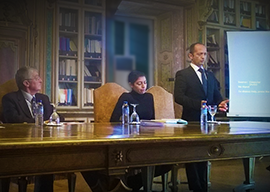
1st International Seminar under the theme of Gender Based Violence | São Tomé and Principe
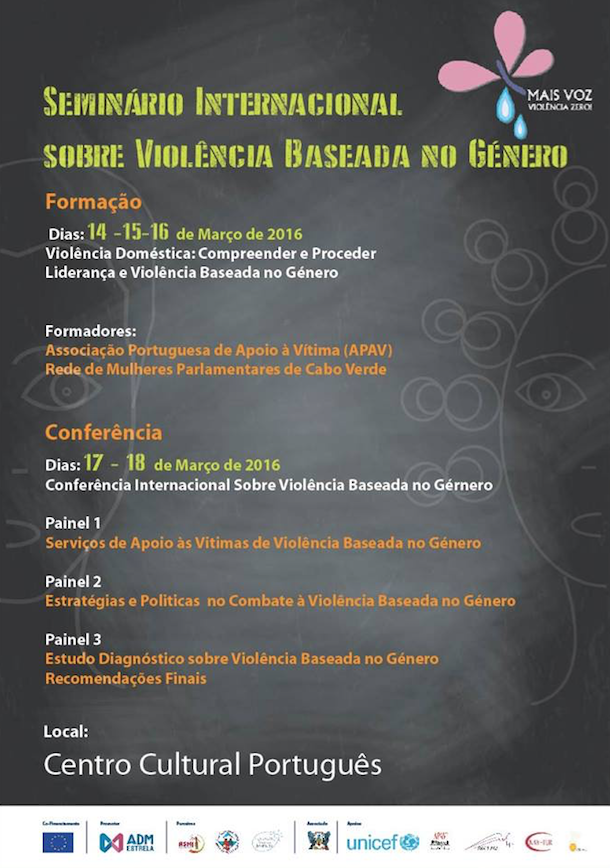
The Association ADM Estrela promoted the 1st International Seminar under the theme of Gender Based Violence. The event took place at the Portuguese Cultural Centre of the Embassy of Portugal in São Tomé and Principe, between the 14th and 18th of March 2016.
APAV was present in the event, represented by Daniel Cotrim, technical advisor of the board. Besides providing training about Domestic Violence, our technical advisor also presented a communication at the International Conference.
At the end of the event, a set of conclusions and recommendations was presented on policies in the area of Poverty, Social Protection, Gender Based Violence, Equality and Gender Equity and Public Health of São Tomé and Principe, in order to increase comprehensiveness on the reality of the violence phenomenon in this country.
Seminar Infovictims: Innovation in promoting victims’ rights | April 7th 2016 | Porto
The Seminar Infovictims: Innovation in promoting victims’ rights will take place in Porto, on the 7th of April 2016, at the Atmosfera M.
This Seminar is developed under Project Infovictims II (co-financed by the Criminal Justice Programme of the European Union), promoted by the
Portuguese Association for Victim Support (APAV) in partnership with Victim Support Scotland (Scotland), Subvenia Victima (Poland), Weisser Ring Germany (Germany), Weisser Ring Austria (Austria), Victim Support Europe, Public Security Police (PSP) and the Directorate-General of Justice Administration (DGAJ).
We are living in a crosscutting moment in what concerns the rights and support to victims of crime. This paradigm shift, mostly in result of the EU Member States implementation of the Directive of the Parliament and of the Council establishing minimum standards on rights, support and protection of victims, brought additional challenges and an urgent need for (re) adaptations on both the criminal justice system and on victim support services.
At the same time, the growing importance of the information and communications technologies triggered the promotion of new victim support models. These new models are mainly focused on the search for innovative responses and services closer to victims, their families and friends.
What is the state of the art concerning victims’ rights in Europe? Which are the most pressing challenges?
Which innovative ways are Member States drawing to improve the provision of information, support and manner of dealing with victims?
How to reach even more victims? Which new forms of providing information and support are raising in the field?
In Seminar Infovictims: Innovation in promoting victims’ rights we will analyse the state of the art concerning victims’ rights in Portugal and in Europe, as well as reflect on innovative aspects and effective ways of providing information, support and protection to victims of crime.
Save this date and guarantee your presence by registering at:
European Day for Victims of Crime: APAV presents new report and new raising awareness campaign
To mark the European Day for Victims of Crime, February 22nd, APAV presented the report “Victim Support Line Statistics | Nov_2014 / Dec_2015” and a new raising awareness campaign.
The Victim Support Line - 116 006 – is a phone number to support European victims and is a free and confidential service, adequate to the needs of each victim of crime and / or violence. This service works with a network of partnerships of the judicial and police authorities, enabling a fast forwarding of the victim's case to the competent entities.
The awareness campaign was developed by the agency Human, in the aim of promoting the Victim Support Line.
UN Conference on Human Rights of Victims of Terrorism
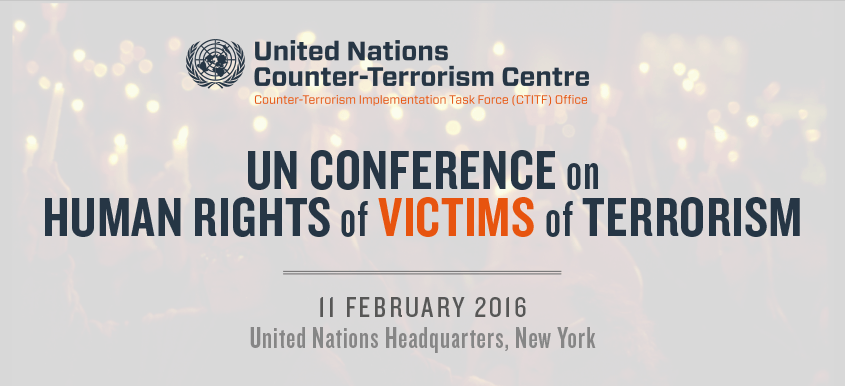
João Lázaro represented Victim Support Europe (VSE) at The UN Conference on Human Rights of Victims of Terrorism that took place on Thursday 11 February at the United Nations Headquarters.
The Conference, organised by the United Nations Counter-Terrorism Centre (UNCCT) gathered experts from civil society, academia as well as regional and international organisations. The conference aimed to examine how States can strengthen their national legislation, procedures and practices, based on the report on the “Framework Principles for Securing the Human rights of Victim of Terrorism” (A/HRC/20/14) by the Special Rapporteur on the promotion and protection of human rights and fundamental freedoms while countering terrorism.
VSE’s President João Lazaro cautioned against the instrumentalisation of victims within the counter radicalisation narrative. As Sue O’Sullivan, Canadian Federal Ombudsman for victim of crime mentioned, some victims might want to tell their story to make sure the same doesn’t happen to others. These victims want to be part of solution but should always be given the choice whether or not to engage in this counter-narrative. Above all the well-being and safety of the victim should remain the key priority when developing the counter-narrative. ‘We should always put the Support for victims of terrorism and their families first.’
